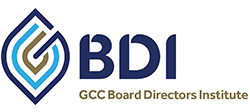
What do you think are the key issues facing boards in the future?
The role of board members is now far more challenging and demanding than what it used to be a few years ago. This is largely due to the increased market volatility and competitive pressures. Board members face additional challenges due to changes to trade regulations, restrictions and other legal requirements.
Although attention has been given lately to digitization/information management and cyber security, I have to say that these are the new challenges that boards must understand well to run their JVs effectively.
With an ever-changing environment, JVs have to get efficient and focused support and guidance from its board. This requires board members to dedicate 25% to 30% additional time to their JVs.
What do you think are the key factors for good governance of organizations in the future?
As the dynamics in several industries are changing, many companies are faced with increasing uncertainties. Therefore, it is paramount for companies to be agile and responsive to both present and future needs to have good governance. Stakeholders trust companies to protect and look after their interests by setting the right policies and controls and making the right decisions at the right time.
Understanding and utilizing data is key to good governance. Data privacy and security, coupled with transparency, are some of the expectations stakeholders have from companies. Agility and flexibility in organizational governance are also critical in keeping pace with the regulatory environment.
Disruption presents both challenges for organizations and opportunities for innovation. How can boards reform and refocus to benefit from these opportunities?
With the fourth industrial revolution in full swing, the world around us is changing rapidly. Companies will not be able to withstand disruptive forces by just identifying and mitigating risks.
Disruptive risks are evolving as new technologies emerge, people are changing the way they used to do business, and new regulations are being enacted; etc. There are a lot of uncertainties. So companies should be diligent enough to identify these risk factors and plan accordingly. At the same time, these changes bring a lot of opportunities that companies and boards should not shy away from exploring to stay competitive or even taking the lead.
To do so, company boards should inculcate an environment of innovation, tolerance, and learning. Failures should be accepted when they come with good learnings, innovation and adaptability should be encouraged, divergent views must be paid heed to. Board members should be honest with each other, face challenges, and adapt to diversity as a way of survival and success. Questions, queries, and challenges should be encouraged in boardrooms. Transparency and honesty among board members should help them make the right decisions at the right time. Thus companies can withstand disruption through early risk identification and by taking advantage of opportunities.
In view of digital disruption and the 4th industrial revolution,what do you see as the key opportunities and challenges for companies?
Technological advancement is expected to continue for quite some time. The 4th industrial revolution is changing the way we do things. Uber, for example, has changed the concept of taxi service.
Now barriers between inventors and market have been reduced. Entrepreneurs and small companies introduce their products to the market at a speed that was not imagined before. While this presents good news to consumers, many companies and workers are scared of what this can bring.
Robotic technology has dramatically improved and whilst low-wage workers are worried that technology can replace their jobs, companies are counting on long-term gains in efficiency and productivity. Yet if this is not managed carefully, there could be socioeconomic challenges and we could see disruption to the labor market. Therefore, skills development of workers is important. Innovative talented minds will be in demand along with highly-skilled technical people.
5G has revolutionized data transfer mechanisms. What comes next might be beyond imagination. However, what is certain is that people will develop new channels of communication. This coupled with new applications of artificial intelligence will offer massive opportunities to new markets and economic growth.
However, cyber security and organized hacking are increasingly more complex and disruptive than ever before and companies will need to address these risks from the start.
What role will corporate governance play as the world embraces a future influenced by big data, IoT and an ever-more technology-based society?
Data gathering and storage have become the norm in all companies regardless of their size. Vast amounts of data collection is both a blessing and curse at the same time. Big data provides unparalleled customer insight that helps companies in delivering what their customers want. At the same time, safeguarding information and complying with regulatory, legal, governance, and even social obligations are big tasks.
Managing data security risks in the most efficient and effective way is a real challenge for most companies. Data continues to grow and companies ought to develop policies and governance to protect data.
The power of data and IoT is huge. So corporates must know how to use data and sort out real data from clutter. Linking everything though IoT will certainly increase a company’s vulnerability to network errors and cyber-attacks. Hence, corporate governance needs to understand and identify these vulnerabilities and put sufficient security measures in place to guard data.
In an ever-changing GCC business environment, what are the top three methods to sustain sound corporate governance?
I believe accountability, managing conflicts, and transparency are important to sustain sound corporate governance. People need to show ownership, take pride in their accomplishments and take count of their failures.
Board members should not shy away from putting forth their viewpoints.
Hierarchical boundaries should be removed to benefit from everyone’s experience.
Introducing independent members to the board will minimize conflicts of interest, especially in family-run businesses.
And finally, understanding data risks and having the right approach to counter cyber-attacks and hacking will be expected from big corporations in the GCC.
What do you see as the disruptive forces impacting your organization, and how do you stay relevant as a leader?
While disruptive forces pose a real challenge to most companies and the way they do business, it is not so impactful, in my opinion, in the chemical commodities industry in production mechanism, cost structure or demand in the market.
In fact in many cases, it presented opportunities especially when companies were willing to embrace these changes and had the foresight to take part in leading the transformation.
In this age of digitalization and information revolution, every leader is expected to be fully abreast of technology.
Disruption is happening and will continue to happen in the near future. We have to accept this and capitalize on the opportunities it presents while fending off the risks. Continuous learning by individuals and organizations is key to lead in this transformation.
Additionally, the changes in the regulatory environment and the shift in market dynamics require us to be vigilant and dynamic. Agility and focus will enable organizations to tide over the impact of changes and have a sustainable growing business.



COMMENTS ARE OFF THIS POST